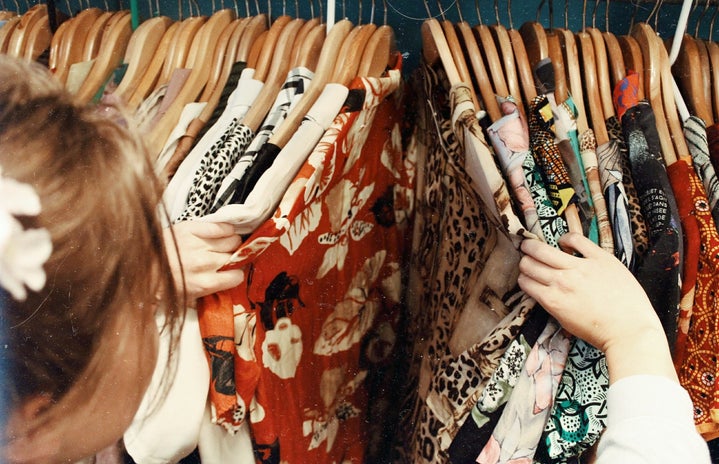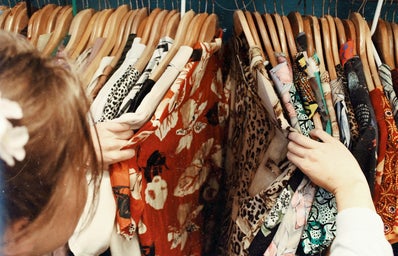When I was taking college prep classes and workshops in high school, I heard from a lot of polished, successful adults about the importance of curating a self-image. Branding, they told me, is one of the most important things you can do for yourself as a young person. Everything that you post, the clothes that you wear, the people that you hang out with and the words that you speak are going to mark you as a certain type of person. The goal is to make yourself appealing to the right kinds of people. This translates to the people who are going to be hiring you, the friends who are going to help you network and the admissions officers that are going to be looking over your college applications.
Recently, branding has also become a term for Gen Z-ers who are looking to fit into a certain aesthetic. TikTok and niche meme pages have us all questioning what type of person we are and what groups we identify with. Are you cottagecore? Indie? Dark or light academia? What kinds of things do people identify with you? It feels kind of like a bad high school movie where everyone is clearly divided into specific groups as the narrator walks through the cafeteria, passing by the popular kids, the loners, the gamers, the chess club, the jocks. When my friends tell me, “That is so on-brand for you,” I’m strangely pleased.
It feels good to be known. It’s nice to have people think of you when they pass a certain store that you like to frequent or when they see your favorite kind of food. But there’s also an increasing pressure to stick to the brand and to be so consistent that it doesn’t leave room for anything else. Recently, I was shopping for new fall clothes and I found a top that I liked. Then I put it back. Not because I didn’t have the money, but because I decided it didn’t look like me. Sometimes I see outfits on other girls that I love, but I think to myself that that’s not the type of thing that I could wear. Sometimes these clothes are a little outside my comfort zone, but sometimes there’s a little voice in the back of my head telling me that those clothes are too dark for me, too outgoing, too loud or just too different. They don’t fit with my personal brand. This has started to make less and less sense to me over time. How can something not be “me” if I like it? There is no permanent state of the self. Being identifiable and trying to contain yourself into a smaller box are two entirely different concepts. When someone is surprised by something I’ve done or said, what I’m wearing or how I’m talking, I try to remind myself that any face I decide to show the world is still my own. It doesn’t matter if I was influenced by someone else or if it came from a part of me that I haven’t shown anyone yet, because it’s still me.
Branding is for products, not people. I’m trying to learn to stop making myself into a consumable good and to accept that there’s no way for me to adapt myself to please everyone. Likability is subjective and settling down into one dependable state of the self to make people more comfortable is ridiculous. There’s a Walt Whitman quote from “Song of Myself” that I keep on my wall and repeat to myself when I’m feeling unlike myself. It reads:
“Do I contradict myself?
Very well then I contradict myself,
(I am large, I contain multitudes.)”
We all contain multitudes. Anyone who is going to be in your life long-term is going to see you change and they’ll be changing with you. Branding might propel you forward in a professional work setting, but it’s no way to live in your personal life. Stop focusing so much on carefully arranging the face that you show the world and instead make sure that it accurately reflects who you are in a given space and time, even if that’s contradictory.


